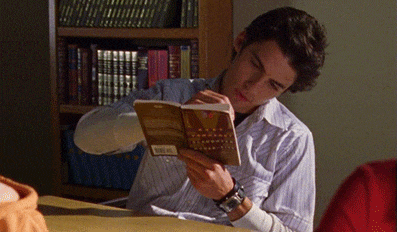**Warning: This post may be biased since the writer is a creative writing major who has to (and wants to) take literature courses - both required and electives.**
At my university, everyone is required to take a literature course called Literature and Culture. I took it under Dr. Penner, who has easily become one of my favorite English professors. She's intimidatingly intelligent, but she's also warm and engaging and passionate. She made the class more enjoyable than the normal gen-ed class would be. Yet, many of the students at my university dread taking Lit and Culture or say it was one of their least favorite classes.
I understand if the required reading for the class wasn't very enjoyable - I certainly didn't love most of the books my class read. But that doesn't mean a literature course, particularly a literature elective that you choose, can't be an enriching and fulfilling experience. Literature is best for introducing us to new perspectives and experiences. How can you learn about the world around you, especially if you can't afford to travel? Of course, you could always go to the bookstore and library and pick up books to read by yourself. But I believe taking a literature class is just as good an experience.
Most of my literature professors emphasize the importance of discussion, and they require a lot of participation or at least evidence that you are engaging with the discussion and text. Discussion gives students a chance to hear other points-of-view about what they've just read. It can help you understand the text better or connect with your peers' life experiences. If you're a non-English major, you'll get to meet super cool people who love books and want to share their thoughts on them. Plus, if they're anything like me and my English major friends, they'll think you're cool for choosing to take the class.
Another benefit of a literature elective is that it gives you a way to read at least a couple books per semester. The average adult reads so few books, and we need to change that. I understand college is a busy time and not everyone has free time for reading, but if you take a literature elective, you have to read at least a couple of books! It's the perfect reason to sit around and read and be better read than the average adult.
Best of all, if you can choose a literature elective and aren't forced to take a certain course, you can take classes that sound super fun! This fall, I'm taking Adolescent Lit. We're reading ten middle grade and young adult books, including The Hunger Games and The Lion, the Witch, and the Wardrobe. As a lover and writer of young adult fiction, this class is a dream come true. I get to take a Shakespeare course at some point in the next two years, and my university also offers classes entitled "Film as Literature" and "C.S. Lewis & the Oxford Circle." Most universities offer minority and women's lit courses. Possibilities are vast and exciting (other universities offer courses such as "Christianity and Fantasy," "Literature of the Oppressed," and even "The Dystopian Novel").
So go forth and find a great literature elective to sign up for.






















